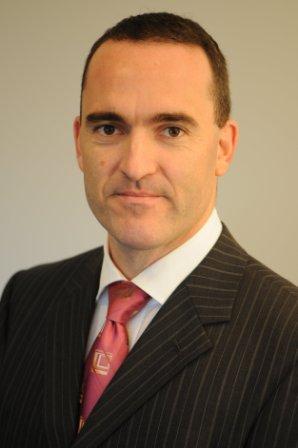Everywhere, the collaboration or “new” economy is bursting out all over. Transport, human services, education, health, politics…pretty much everywhere you look, a combination of technology, entrepreneurs both civic and commercial and just sheer human inventiveness is birthing dramatic changes to the way we live, learn, travel, shop and entertain ourselves.
These changes come with some tricky choices for policy makers and governments.
All over the world, politicians and bureaucrats are wrangling increasingly urgent and complex questions. In the face of all this bursting creativity, do we get out of the way or do we interfere? Does all of this unruly energy need to be saved from itself with carefully designed regulatory responses that make sure we end up with innovation, not devastation? Or are we at risk of crushing the life out of a fragile instinct for invention that needs room to breathe, not rules that wreck?
More than ever, regulators face a stark and unforgiving choice. Intervene too hard and regulate too much, too early and the promise of “faster, better, happier” will be strangled at birth. But deft regulation with the right touch at the right moment just maybe rescues this unruly instinct for “new” from its worst excesses of unacceptable risk and inadvertent harm.
Martin Stewart-Weeks, Public Purpose Ltd, 2015
This session provided a forum to identify the challenges, lessons learned and opportunities available to the public service to improve the quality and timeliness of its advice to government on issues surrounding the ‘new economy’. Our panel of senior policy professionals brought valuable experience in autonomous vehicles, peer-to-peer business regulation, and regulation design.
Topics
- Responsive public sector
- Adaptability
- Regulation
- Agile policy development
Presentations
Martin Stewart-Weeks: Responding to the new economy An exercise in scaleable learning
Andrew Dolling: Hallmarks of agile regulatory posture
Discussion Paper
Martin Stewart-Weeks – Updated draft discussion paper: Responding to the new economy: an exercise in scalable learning
Have your say and continue this discussion by joining our LinkedIn group.
Sketchnotes by Helen Ensikat, Creative Commons:

Keynote Speaker
Martin Stewart-Weeks
Senior Advisor
Deloitte
A strategic thinker, organisational consultant, facilitator and writer, Martin brings 30 years’ experience spanning government, the “for purpose” or social sector and the corporate sector. His work explores the intersection of policy, government, technology and innovation.
Martin writes and speaks extensively on government, service design and policy reform. Together with former Finance Minister Lindsay Tanner, he recently published Changing Shape: Institutions for a Digital Age (Longueville Press, February 2014). Last year, he co-authored a white paper, #wethecity, with Committee for Sydney CEO Tim Williams. He was a member of the Ministerial Task Force on Government 2.0 (2009) and was also a member of the advisory committee on Government 2.0 in Victoria.
In 2008, with a small group of entrepreneurs, he established the Australian Social Innovation Exchange (ASIX) as part of a global network of social innovators. ASIX has now been amalgamated with The Australian Centre for Social Innovation (TACSI), on whose Board he sits as a director.
He is part of the team, led by leading disability reformer and former IBM executive Mark Bagshaw, developing a new venture, The Able Movement, to build a social movement to shift attitudes, beliefs and behaviour in Australia towards disability and disability reform.

MC
Sven Bluemmel
Information Commissioner
Office of the Information Commissioner

Panel Facilitator
Andrew Lee
Director, Strategy
Department of Transport
Andrew Lee is Director Strategy, Policy and Governance with the Driver and Vehicle Services division of the Department of Transport. His experience in the Western Australian public service includes managing regulatory change with the Departments of Commerce, and Communities. He has also worked as a ministerial and shadow ministerial policy adviser in the State and Commonwealth sectors.
Panel Members

Andrew Dolling
Director, Economic Reform
Department of Finance
Andrew is the Director Economic Reform in the Department of Finance, having taken up the role in May 2014.
Prior to this Andrew worked with the Victorian Department of Primary Industries as Director of Forestry Industries Policy, and Director of Natural Resources, Water and Climate Change Policy. Before that Andrew spent 12 years as an economist with the Productivity Commission working on a range of inquiries, GTE reviews and working in the then named Office of Regulation Review (now the Office of Best Practice Regulation and separate to the Productivity Commission). Andrew also has experience in the finance and accounting sector, having worked for MLC, Price Waterhouse Coopers and in his own business. Andrew has a Master of Science in Environmental Change and Management (Ox) and Bachelor of Economics Honours (Mon). He is a Member of the Australian Institute of Company Directors and Finance Brokers Association of Australia.

Lyn Genoni
IPAA WA Life Member, Executive Director of Strategic Policy
Department of the Premier and Cabinet
Ms Genoni joined the Department of the Premier and Cabinet in 1997, and in 2010 was appointed an Executive Director in the Cabinet and Policy Division. She has over 30 years of public sector experience, with more than a decade working on a wide range of State policy priorities in the context of Commonwealth/State relations. Ms Genoni commenced her career in education, and went on to a succession of policy leadership and management roles in a number of government agencies. She has a wide interest in all areas of public sector policy, and was awarded life membership of the Institute of Public Administration Australia WA in 2007.
Her current Economic and Deregulation role involves coordinating, reviewing and providing innovative policy advice to the Premier on key priorities and pressure points for Government across the WA public sector. Priorities include responding to the impacts of the State’s economic and population growth in terms of infrastructure needs, transport, water and energy services, regulatory reform and red tape removal and the Strategic Assessment of the Perth Peel Region for environmental approvals.

Simon Ridge
Executive Director, Resources Safety
Department of Mines and Petroleum
Simon is a qualified geologist and mining engineer with over 39 years’ experience in the resources sector.
Simon has held various positions including supervisor, registered manager, consultant and regulator and the last 24 years Simon has worked as a regulator in Western Australia and South Australia.
As a regulator Simon has been involved in all aspects of mining and major hazard facilities and has been intimately involved in the National Mine Safety Framework process and the current stakeholder consultation around the development of a modern OHS legislative framework for the Western Australian resources sector.

Nina Lyhne
Managing Director, Transport Services
Department of Transport
Nina Lyhne has worked in the Department of Transport since January 2011 as the Managing Director Transport Services. Nina was previously the WorkSafe Western Australia Commissioner and the Executive Director of the Office of Road Safety. Nina’s work experience has involved working in diverse roles across Government agencies in sectors ranging from commerce and trade to community development and occupational safety and health. Nina also holds a Bachelor of Arts in Psychology.
Transport Services is responsible for the delivery of a wide range of transport related services to the Western Australian community. These include driver licensing, vehicle registration, personal on demand transport (including taxis), rail safety, marine safety, coastal infrastructure for small boats and regional services. Transport Services also provides information technology, people and corporate services for the Department of Transport.





